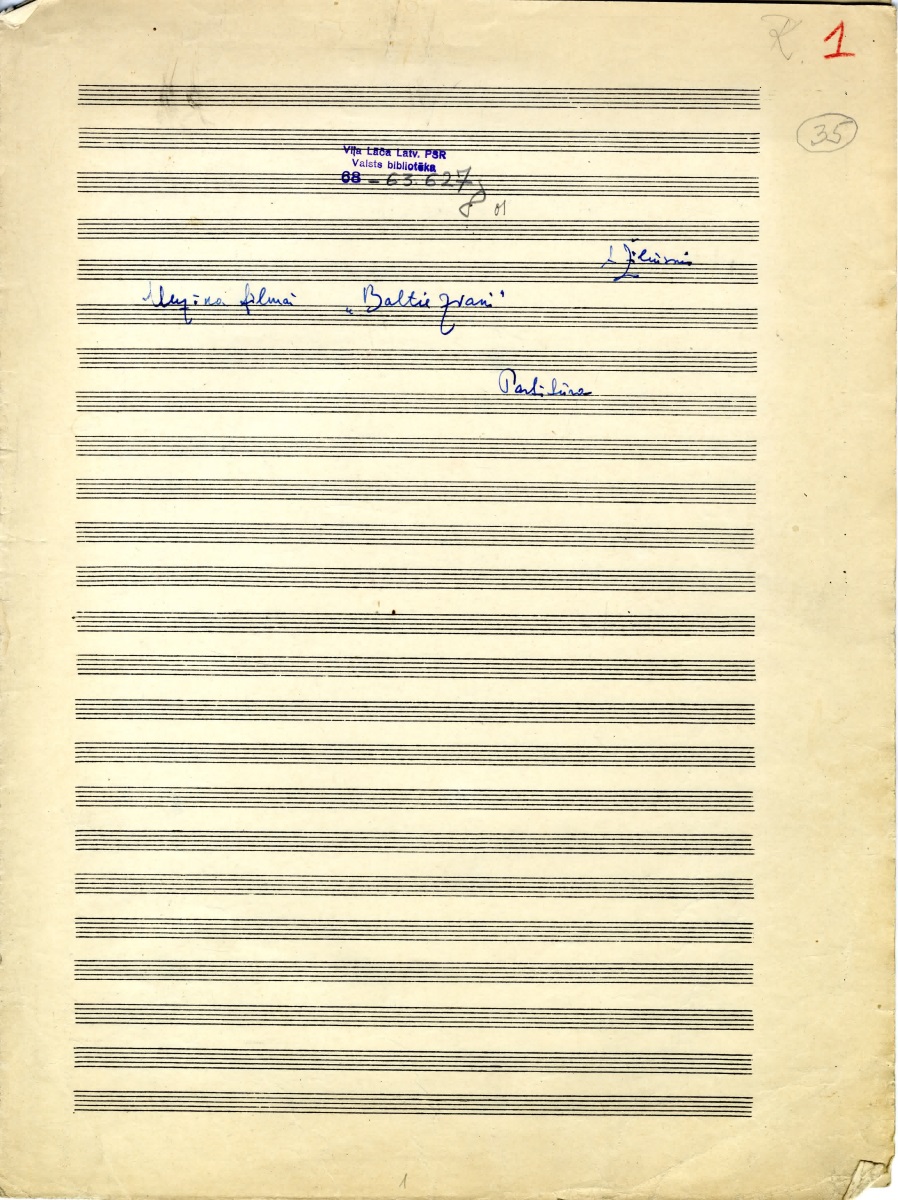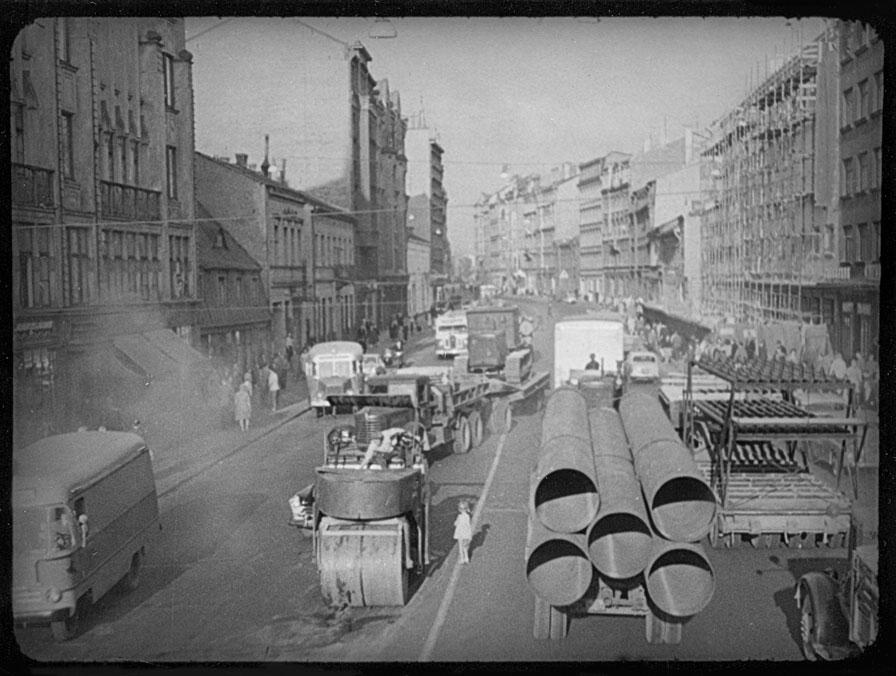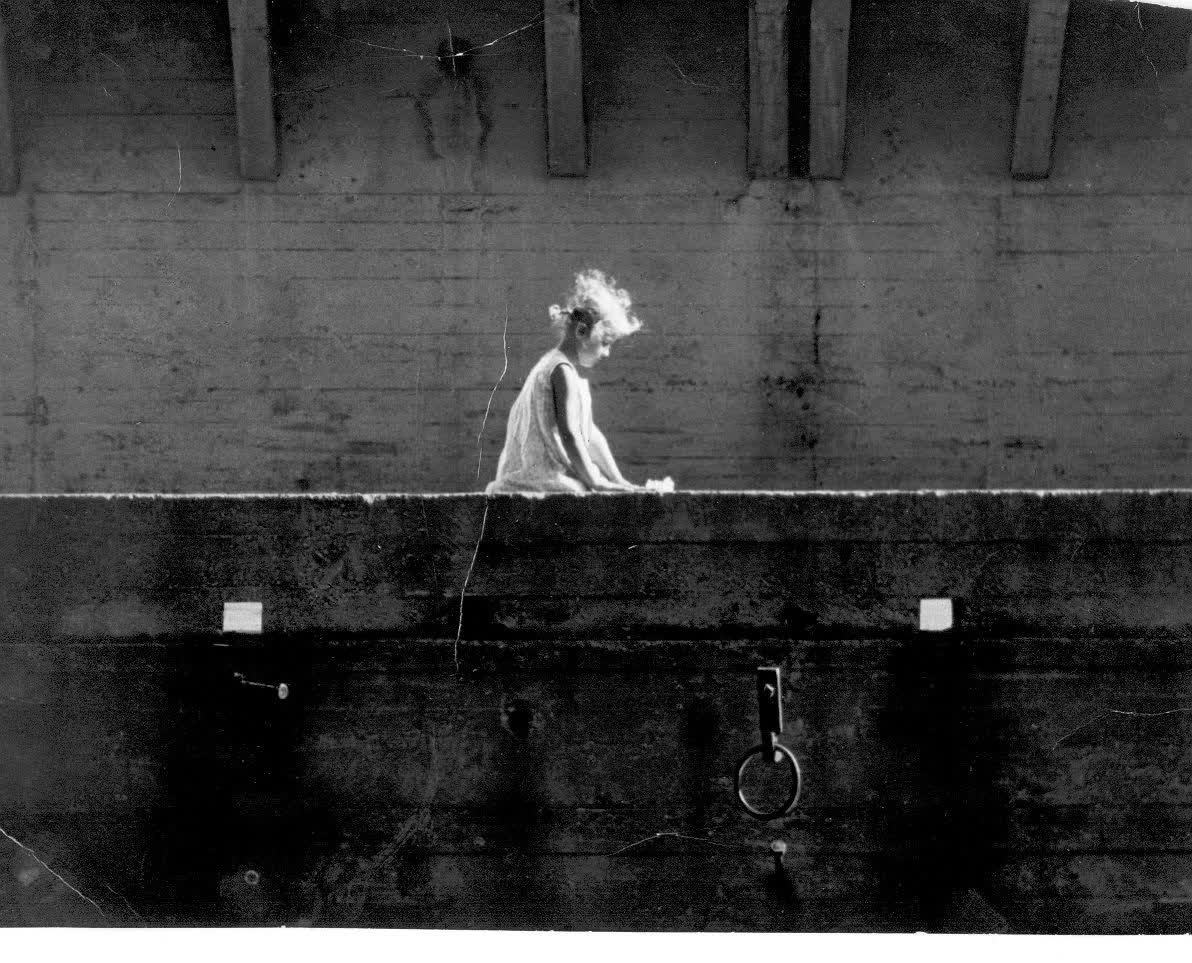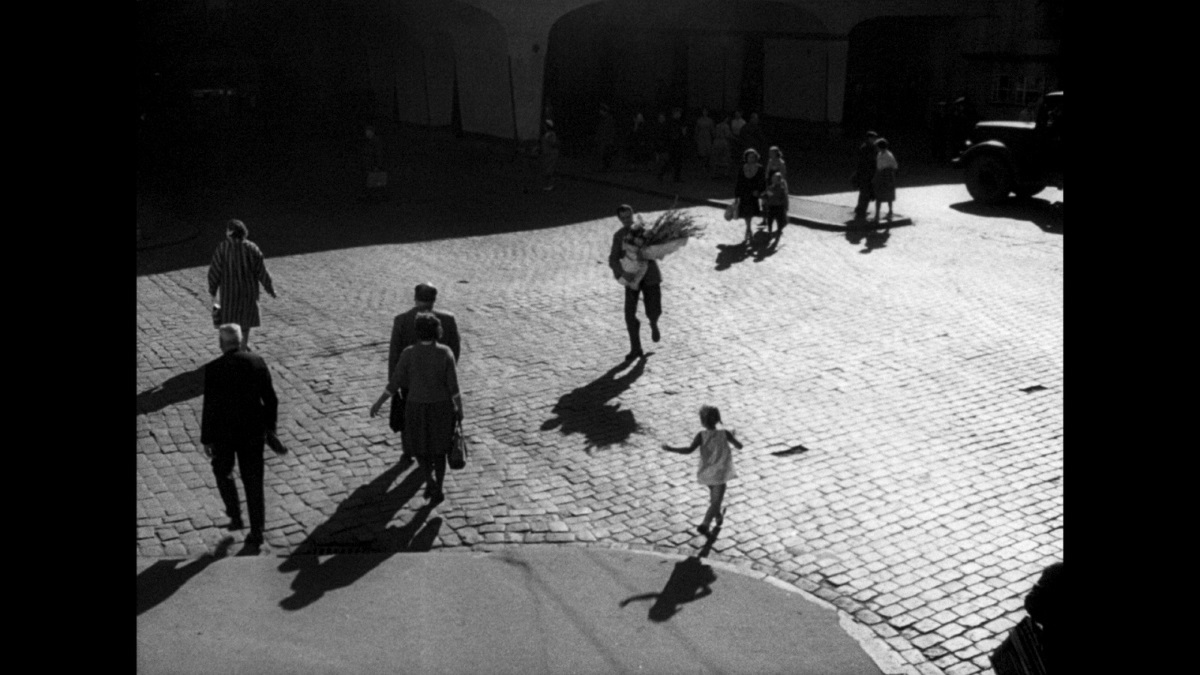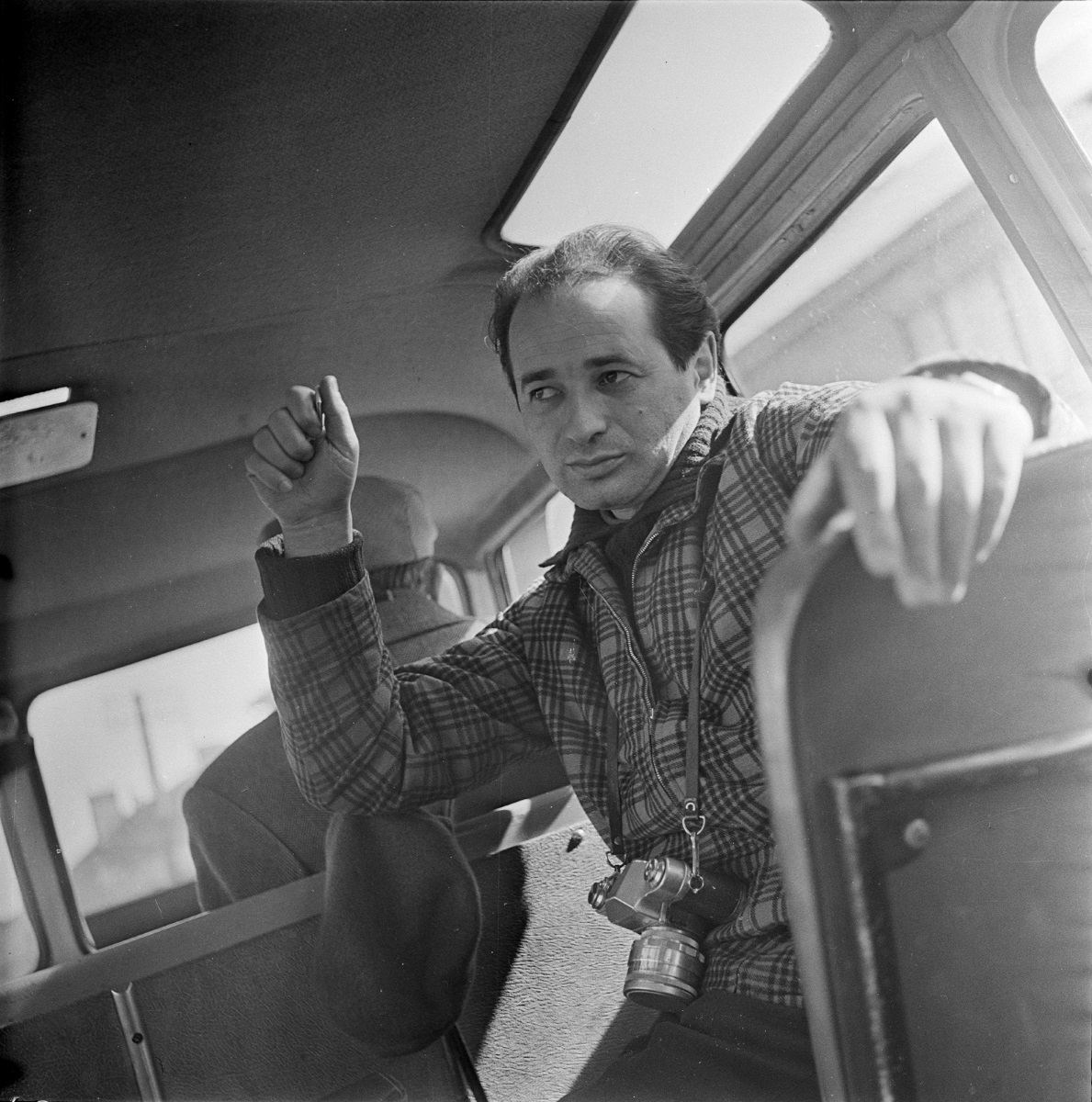The White Bells is a hybrid of both fiction and documentary cinema tropes. In fact, while classified as a documentary there is often debate as to whether this is in fact correct. This is because the film contains a scripted narrative. The film begins seemingly as a conventional documentary film. It opens up on the still, quiet streets of the Latvian capital, Rīga. It is morning and people are just beginning to go about their daily business. This is reminiscent of scenes from Vertov’s famous work “Man with a Movie Camera” (1929) where Russian citizens are shown waking slowly in the city. The streets get busier and busier and we see people rushing off to work, taking trams, arriving by train to the city centre and other pedestrian, ordinary activities. The focus shifts when a young girl is introduced to the audience. The film then moves from documenting the everyday comings and goings of Rīga’s residents to what this one girl is doing. As she roams the streets she happens to notice some white bells in a florist window. However, she is unable to purchase any from the shop, so she makes a treacherous journey through Rīga’s bustling streets to the flower market, where she successfully finds some. Disaster strikes, however, as she heads home. Crossing the street, she drops her flowers in the middle of the road in the path of a huge Soviet steamroller. Luckily, the steam roller stops just in time and she is able to retrieve her flowers and continue on her way. This part of the film is wholly scripted.
It is classified as a documentary for two reasons. First, because it does document the citizens and cityscape of Rīga at this pivotal moment in Latvian and Soviet history. Second, being part of a poetic tradition the documentary “truth” of the film is to be found in its metaphorical reading. The white bells are meant to be representative of Latvia, the steamroller the Soviet occupation. As the flowers are not crushed by the steamroller, the message is meant to be to the Latvian audience that Latvia’s nation and spirit will not be crushed by the Soviet authorities.
“The White Bells” is the first film attributed to the famous Rīga School of Poetic Documentary Cinema. This movement was part of a new wave of Eastern European cinema which was allowed to flourish under the Soviet regime after Stalin’s death. In 1958 Krushchev came into power and ushered in what has known as the “thaw”. The harsh Soviet doctrine of the Stalin era, which was accompanied by anti-dissident and anti-nationalist purges, was replaced by more open policies focussed on the human element of the Soviet Union. There was more of a focus on the individual not just the larger Soviet machine. As a result, the many satellite states were allowed to explore their own cultural identity, within the parameters of socialism. This is the cultural and political milieu in which the Rīga School of Poetic Documentary Cinema was born.
The Rīga School of Poetic Documentary Cinema was founded on the principles of earlier documentary filmmakers such as the Russian director Dziga Vertov (1896−1954) and the English documentarist John Grierson (1898−1972), who saw documentary not as a mere record of reality but an art form in itself. They treated documentary footage as a creative medium. Their documentaries were highly edited and stylised believing that interesting storytelling and visual experimentation would be more powerful in communicating a particular “truth” than simply uninteresting and unedited footage. This blurring of creative storytelling and documentary footage is characteristic of the Rīga School of Poetic Documentary Cinema as well. However, for the filmmakers’ part of the school the reason to employ this poeticism was not just to experiment with the medium of film but also to subversively communicate with the broader Latvian audience messages not endorsed, or in opposition to the Soviet party line.
The film remains an important document of the poetic documentary tradition developed in the USSR. The film was restored in 2015 and is available to watch for free online within Latvia on the portal www.filmas.lv.
Klāra Brūveris

